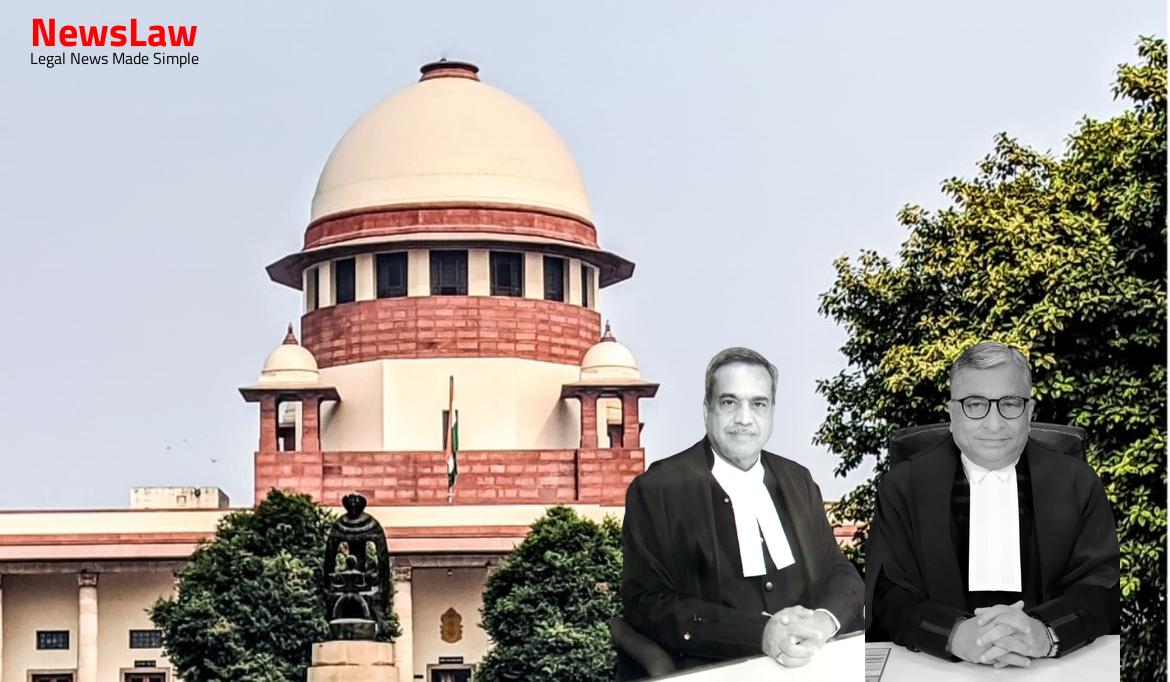Explore a detailed legal analysis of a recent case concerning tender criteria in the provision of airport ground handling services. The court’s in-depth examination of the discriminatory and arbitrary nature of the eligibility criteria illustrates the importance of fair and non-discriminatory tender processes. This summary highlights the crucial role of judicial review in ensuring the validity and fairness of state actions in tender evaluations.
Facts
- The Airport Authority of India (AAI) has filed Civil Appeal No. 6615/2022 against the judgment of the High Court of Delhi.
- The High Court struck down the decision to sub-categorize 49 airports and the criteria regarding work experience and minimum annual turnover as discriminatory and arbitrary.
- The AAI is aggrieved by the decision and has appealed against it.
- AAI floated a Request for Proposal (RFP)/tender for concession of ground handling services at Group ‘A’, ‘B’ and ‘C’ airports on 01.05.2018.
- The RFP for Group ‘D’ airports was modified multiple times and finally republished as Corrigendum No 21.
- AAI cancelled the tender for Group ‘D’ airports on 10.06.2019.
- AAI published a fresh RFP on 28.07.2020 for Group ‘D1’ airports.
- Centre for Aviation Policy, Safety & Research (CAPSR) challenged the eligibility criteria and RFPs for Group ‘C’, ‘D1’ and ‘D2’ airports in a writ petition.
- The eligibility criteria in the RFPs were deemed as a radical departure and onerous by CAPSR, rendering many GHAs ineligible to participate.
Also Read: Challenging Legal Presumptions in Negotiable Instrument Cases
Arguments
- The original writ petitioner challenged the terms and conditions of the tender, including the clustering of 49 airports into region-wise sub-categories, evaluation criteria requiring 36 months of experience in providing ground handling services for scheduled aircraft, and the financial capacity criterion of an annual turnover of Rs. 30 crores.
- It was argued that these criteria had sound rationale and should not have been subject to a writ petition under Article 226 of the Constitution.
- The clustering of airports was done to promote regional connectivity and streamline administrative tasks.
- The AAI was accused of disregarding provisions of the AAI Act, MSME Act, and MSME Order of 2012, which mandate procurement from the MSME sector.
- The High Court set aside certain stipulations in the RFPs, including considering only experience in providing GHS to scheduled aircraft as acceptable, and the revised minimum annual turnover criteria.
- The original writ petitioner also argued that the technical and financial qualifications were arbitrarily tailored to oust existing GHS providers.
- The respondent No.1 was argued to have locus standi to file the writ petition.
- The clustering of small airports into regions is not based on intelligible differentia and lacks rational nexus to the objective of security.
- The eligibility criteria and conditions mentioned in the tenders were found to be discriminatory and arbitrary with no clear connection to the stated objective.
- The High Court decision to strike down the region-wise sub-categorisation of airports, the stipulation on previous work experience, and the revised minimum turnover criteria was justified.
- The terms and conditions in the tenders were deemed discriminatory, restrictive, and exclusionary by the High Court.
- AAI introduced artificial differentiation in technical eligibility criteria by specifying experience with scheduled airlines only, despite no such distinction in regulations.
Also Read: Legal Analysis of Admission Irregularities in Educational Institutions
Analysis
- GHAs who participated in the tender process did not challenge the tender conditions
- The writ petition was not in the nature of Public Interest Litigation
- Courts have limited interference when the Government follows healthy standards like inviting tenders
- Terms and conditions of tenders are within the domain of the tendering authority and not open to judicial scrutiny unless arbitrary, discriminatory, or mala fide
- Government/tender making authority should have a free hand in setting tender terms
- Respondent No.1, an NGO, cannot be considered an aggrieved party
- High Court erred in entertaining the writ petition challenging the eligibility criteria/tender conditions in the RFPs
- Courts cannot interfere with tender terms set by the Government based on personal opinions of fairness or logic
- AAI provided rationale for the tender conditions before the High Court
- The set conditions were not found to be arbitrary, mala fide, or biased
- AAI had the authority to set its own terms and eligibility criteria
- Judicial review is applicable to ensure the State acts validly and not whimsically
- The appeals seek to quash and set aside the High Court’s judgment
- The scope of judicial review in matters relating to award of contracts by the State and its instrumentalities is well established.
- Submission of a tender is merely making an offer which the State is not obligated to accept.
- Fairness and non-arbitrariness are essential for State action under Article 14.
- Fixation of tender value is the executive’s prerogative unless proven arbitrary or unreasonable.
- Preconditions for tenders are essential to ensure the contractor’s capacity and resources.
- Courts should interfere only if the State’s actions are malicious or a misuse of powers.
- Award of contract is a commercial transaction based on relevant considerations.
- Tender terms are not open to judicial scrutiny unless tailored to benefit specific tenderers.
- Equal and non-discriminatory treatment of bidders is required in tender evaluation.
- Negotiations or relaxations in tender process are permissible for valid reasons.
- The High Court should not have entertained the writ petition challenging the terms and conditions of the tender documents
- None of the tender conditions or eligibility criteria were found to be arbitrary, mala fide, or biased
- The High Court’s judgment and orders were deemed unsustainable and thus quashed and set aside
- Selecting GHS for providing GHS is not equivalent to procuring goods and services under the MSME orders
- The High Court erred in entertaining the writ petition by the NGO and declaring the eligibility criteria in the tender documents as illegal
- The MSME orders of 2012 and 2018 submissions are subject to meeting other conditions of the tender documents
Also Read: Quashing of Enhanced Tuition Fee in Private Medical Colleges
Decision
- The instant appeals were allowed.
- The writ petition filed by respondent No.1 was dismissed.
- No costs were awarded in the case.
Case Title: AIRPORT AUTHORITY OF INDIA Vs. CENTRE FOR AVIATION POLICY, SAFETY AND RESEARCH (CAPSR) (2022 INSC 1047)
Case Number: C.A. No.-006615-006616 / 2022



